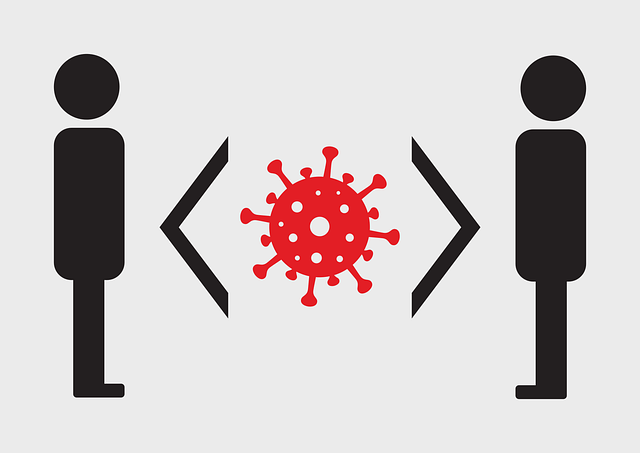
The coronavirus pandemic could yield a range of societal impacts. Here are some of the legacies it could leave.
Coronavirus has ripped apart normal life, quickly changing the way we behave in work, as consumers, online and as human beings. But which of these habits will stick? And what could that mean several years from now?
The past provides some clues. The First World War greatly advanced the cause of women’s suffrage as they took over the work of men who had gone off to fight. The terrorist attacks of 9/11 triggered a huge rise in surveillance and security. The emergence of the gig economy can be attributed to job losses in the traditional economy after 2008.
This would not be the first time a pandemic left its mark on the world, says Mark Honigsbaum, medical historian and author of The Pandemic Century. ‘HIV/Aids completely politicised the idea of minority rights,’ he says. ‘The Plague reduced Europe’s population by up to a half, so there weren’t enough peasants to work the land and a lot of feudal estates were broken up.’
The consequences of coronavirus could be even more far-reaching. ‘People are talking about BC – before corona – and AC – after corona,’ says Honigsbaum. So what will society look like ‘after corona’?
‘When we re-enter consumption, the marketplace will not be the same,’ says Rajesh Chandy, professor of marketing at London Business School. However, big problems yield big opportunities: ‘New businesses will come to the fore because they will have more salient ideas for our time. For example, call centres are used to experiments in AI, but it has always been ineffective. Now that they are overloaded and CEOs are willing to listen, innovation can take off.’
One area where demand (and therefore innovation) is skyrocketing is work. For years, bureaucracy has erected artificial barriers to working from home. Now that these have been swept away by necessity and infrastructure has been implemented (shares in video conferencing platform Zoom have almost doubled in value since the start of the crisis), companies may question the validity of spending big bucks on expensive office spaces. In shopping and retail, Covid-19 has hastened the takeover of e-commerce.
In 2002 the Sars outbreak played a central role in catapulting Jack Ma’s e-commerce company Alibaba to prominence. In 2020, coronavirus could prove to be the final nail in the coffin of many malls and shopping centres.
The hospitality industry is another that has taken a kicking during the pandemic, but while people have stopped going to restaurants, pubs and coffee shops, they have started ordering online in droves. In entertainment, virtual pub quizzes, Zoom happy hours and even theatre live-streams have exploded.
This all raises the question: how far can online communication replace face-to-face interactions? Enhanced technology could prove insidious. In China, drones searched for people not wearing face masks. The South Korean government sends texts to the public identifying potentially infected individuals. Germany, Austria, Italy and Belgium are using data from telecoms companies to do something similar.
Coronavirus has justified the introduction of measures that impinge on citizens’ privacy, but could such changes stick around long after the threat from the virus has subsided? Ripples from this pandemic will be felt for years to come. Perhaps there will be psychological traces – we might find ourselves recoiling instinctively when someone extends their hand for a handshake. But there may also be more fundamental changes to our way of life.
Magda Osman, author of Future-Minded: The Psychology of Agency and Control, believes we may see people living in fear of disease long after the threat of coronavirus seems to have passed.
‘Wariness will continue,’ she says. ‘This will be expressed in a variety of behaviours, from face-mask-wearing to restricting social interactions.’ The idea that ‘fear’ could become a much bigger part of our lives is echoed in the work of philosopher Toby Ord, who argues that humanity is now facing more existential threats than ever. (Until Covid-19 struck, the Australian bushfires seemed apocalyptic).
In 2008, the collapse of the markets seemed like the worst thing that could happen to society; we are now seeing that even the healthiest economy can be brought to its knees by an ecological crisis. In this way, coronavirus is a great – and global – equaliser. It has presented us with a common enemy that does not discriminate between nations.
However, it can equally be argued that the pandemic is reinforcing the idea of borders. Just as Jews were racially scapegoated during the Black Death, some leaders are harnessing a fear of the ‘external’ and ‘foreign’ to push nationalism.
‘People want to direct anxiety towards an entity that can be blamed,’ says Osman. ‘The entity could be an underfunded health service, or it could be another country. If the latter happens, there is likely to be fallout.’
This piece first appeared in issue 74 of Spear’s, available now. Click here to buy a copy and subscribe
Read more
Cover story: where will Covid-19 leave us in five years?
‘Don’t panic’ – wealth managers react to Covid-19
Inside the latest edition of Spear’s: How the Covid-19 pandemic will transform our world






